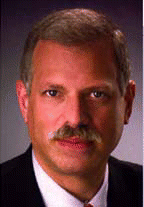Frank Sinatra purportedly said of Rosemary Clooney that she was able to hit a note right in its center.1 Repeatedly hitting the notes right to a singer is what repeatedly achieving successful suturing and splicing is to a surgeon-both exemplify expertise in a given craft long honed through hours of training, practice, and performance. Critical to such talent is maintenance of the instrument on which that talent relies-for the surgeon, the hands; for the singer, the voice.
Explore This Issue
May 2007For people who rely on their voice for their craft and profession-such as singers, actors, politicians, teachers, and preachers-maintenance of vocal quality is fundamental to a successful and enduring career. The issues of how to maintain good voice quality and how to prevent and treat vocal problems in the professional voice user have given rise to a virtual cottage industry within the otolaryngological profession. Several centers are now available that are devoted to professional voice care. Since 1972 the Voice Foundation (www.voicefoundation.org ), the oldest organization in the world devoted to medical research and education on the voice, has held an annual symposium on the care of the professional voice.
Common Problems for the Professional Voice
Answering your question about common voice problems [in the professional voice] is not as easy as you may think, said Robert T. Sataloff, MD, Chairman of the Philadelphia Voice Center (www.phillyent.com/practice/voicecenter.php ), one of the first centers dedicated to care of the professional voice. Professional voice users, such as singers and actors, are professional athletes. They place great demand not only on their voices, but also their bodies, he continued.
According to Dr. Sataloff-who is also Chairman of the Department of Otolaryngology-Head and Neck Surgery and Associate Dean at Drexel University College of Medicine, a leading expert in caring for the professional voice who has written extensively on the topic, as well as a trained professional operatic singer-these demands take a toll not only on the voice but also on overall health, making professional voice users predisposed to such voice injuries as vocal fold hemorrhages, tears, cysts, and nodules, as well as a number of health problems. Among these, he said, is the high prevalence of laryngopharyngeal reflux. As many as 80 percent of professional voice patients have reflux in addition to-and possibly aggravating-the primary problem for which they seek medical attention, he said, adding that hormonal imbalances, orthopedic injuries that affect posture, and respiratory conditions such as asthma can undermine effective voice use, limit performance ability, and lead to injury.
For Melissa Kelley, MM, a soprano and voice teacher in New Jersey, recognition of the prevalence of acid reflux disease among singers has been a revelation. I and many singers I know have succumbed to acid reflux disease, and it is a voice killer, she said. For many of us, the cause of our debility was a big mystery until GERD [gastroesophageal reflux disease] was diagnosed, because the symptoms, except for the vocal dysfunction, were either slight or nonexistent.
According to Ms. Kelley, another unique problem among singers is vocal overuse. Singing with bad technique or singing inappropriate literature for one’s voice type can lead to serious physical problems.
Anthony Jahn, MD, Director of Otolaryngology at St. Luke’s Roosevelt Hospital in New York and Adjunct Professor of Voice Pedagogy at Westminster Choir College in Princeton, NJ, agrees. The effects of voice overuse and voice abuse, such as excess muscle tension in the throat, vocal fold edema, and nodules, are common in this group, especially in patients who are inadequately trained or ask their voice to perform tasks for which they were not adequately prepared.

Causes and Effects of Voice Problems
For clinicians and other professionals who help professional voice users-particularly singers-care for their voices, an understanding is needed of the delicate balance between the external and internal factors that allow the voice to function well is essential. Physical issues and emotional issues are the yin and yang of the singing voice, said Dr. Jahn. It is important to realize that for singers, structure and function are closely related, interdependent, and interactive.
Giving the examples that a singer may become stressed and depressed if he or she is unable to sing because of a damaged larynx, or that a singer with a type-A personality may develop excess muscle tension and laryngeal nodules, he emphasized that the importance for a clinician is to recognize and treat both, and be aware of how one feeds into the other.
Along with the external factors described above (such as voice abuse and overuse and acid reflux), other external factors that clinicians need to pay attention to are environmental stressors that may impair prime motor control necessary for good singing, such as exposure to smoke, dusty and dry auditoriums, and stage fog, as well as daily demands on the body. Performance schedules and commitments commonly lead to sleep deprivation, often substandard nutrition, and voice overuse, said Dr. Sataloff.
Ms. Kelley agrees. A big occupational hazard of performers, especially singers, is the widely erratic schedule many of us have that interferes with intelligent meal consumption, she said.
For Ms. Kelley, one of the biggest problems she deals with in her students, which has a major influence on their voice development and quality, is psychological. The mental attitude that I have had the most problem with in students, and some colleagues, is a certain drive to overachieve, she said. Not only does it cause a ‘hyperfunctioning’ of the singing mechanism, but these singers are intensely judgmental about themselves…[and this] causes them so much emotional pain while singing that their progress, if any, is excruciatingly slow.
Emphasizing the huge role that psychological and emotional factors play on vocal health, Charlotte Surkin, MA, a professional singer, voice teacher, and Adjunct Assistant Professor at Westminster Choir College, who has completed a number of internships in vocology, explained that emotions can cause the constrictor, neck, and glossus muscles to tighten, which creates a pressured airflow and a constricted sound.
All agree that an understanding and recognition of the environmental stressors, along with the psychological and emotional pressures that make a person prone to voice problems, are critical to providing good prevention and treatment advice.
Preventing the Failed Note: Voice Maintenance
The best preventive care for voice users is training, said Dr. Sataloff. Along with voice lessons, proper aerobic exercise, and exercise of the abdominal and back muscles for voice support, training includes the proper care of the body by giving it sufficient water, nutrition, and sleep. He also advises singers and actors to get a baseline laryngological evaluation with strobovideolaryngoscopy when they are healthy, saying that a high percentage of people will have abnormalities already present that have been asymptomatic for years. Singers and actors should know their own personal anatomy and physiology, he emphasized, adding that they also should learn about vocal health to help them avoid activities that may lead to injury and to allow them to discern whether medical advice, if needed, is reasonable.
Dr. Sataloff also recommends embracing the many psychological and emotional stresses that accompany performance and to use them to enhance performance. For incapacitating performance anxiety he recommends psychotherapy, but dissuades use of self-medicating substances such as alcohol, diazepam, or beta-blockers.
Taking care of the body, getting to know one’s body, and learning to manage the physical and psychological stressors on the body all seem to be the foundation on which good preventive care lies. Always listen to your body, and listen to your voice, said Dr. Jahn, who is also the Medical Director of the Metropolitan Opera in New York and has written a number of articles on maintaining good vocal health (www.operadoctor.com/article.html ). Don’t ask it to do anything it doesn’t want to do. If it hurts to sing, you’re doing something wrong.
Ms. Surkin concurs. Be sensitive to your own voice and if you notice anything unusual, go on complete vocal rest. If there is no improvement after a few days, you need to see an otolaryngologist.
When to See a Doctor
Good preventive measures that rely on self-care can reduce injuries, but certain signs and symptoms may indicate the need to see a doctor. Perhaps the most predominant symptom that warrants a call to the doctor is persistent hoarseness. Hoarseness and fatigue that usually follow a performance can be self-treated with rest and good hydration, but if they last for any length of time they should be checked out. Both Dr. Sataloff and Dr. Jahn recommend seeing a medical or voice professional if hoarseness persists for longer than two days or a week, respectively. Ms. Surkin recommends seeing an otolaryngologist to be scoped if symptoms don’t get better in a couple of days. I recommend an ENT whose patients include a majority of professional singers. I have found that they have a keener eye, she said.
In summary, care of the professional voice is a growing area of specialty within otolaryngology clinics. A good understanding of the common problems that affect professional voice users, along with the external and internal causes of these problems, is critical to otolaryngologists, speech pathologists, and voice coaches, who often collaborate to help professional voice users maintain good voice quality.
Reference
©2007 The Triological Society


Leave a Reply